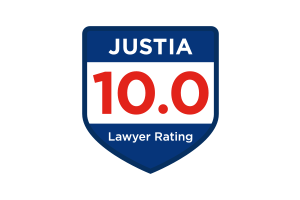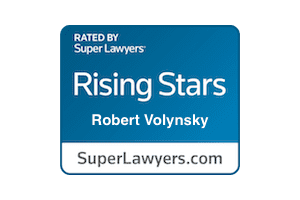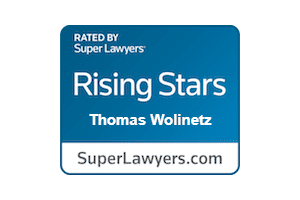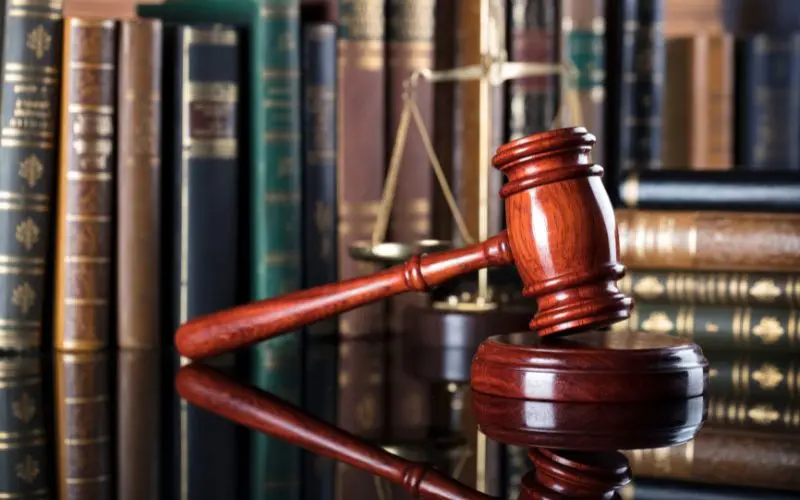



FINRA (Financial Industry Regulatory Authority) handles various disputes within the securities industry, encompassing issues between investors and brokers or between brokers and brokerage firms. Understanding these common types of disputes can help investors recognize potential problems and seek timely legal assistance. Contact us today for immediate assistance.

FINRA, the Financial Industry Regulatory Authority, is a non-governmental organization that acts as a self-regulatory body for brokerage firms in the United States. Its primary role is to protect investors by ensuring that the industry operates transparently, ethically, and in accordance with established rules and regulations.
Key Functions and Responsibilities of FINRA:
By performing these functions, FINRA seeks to prevent financial fraud, promote transparency, and reduce the risk for investors, thereby bolstering confidence in the U.S. financial industry.
Here are several prevalent types of disputes that are often addressed through FINRA arbitration:
This dispute arises when a broker executes trades in an investor's account without prior authorization or consent. Unauthorized trading is a clear violation of FINRA rules and can result in significant unintended financial exposure or losses for the investor.
Investors may file claims against brokers who provide misleading information or fail to disclose important facts about an investment. Misrepresentation can lead investors to make decisions based on incomplete or false information, potentially resulting in substantial financial losses.
Brokers must recommend suitable investments based on the client’s profile, including their financial situation, investment objectives, risk tolerance, and other factors. Disputes occur when investments are unsuitable for the client, often leading to unnecessary risk and losses.
Churning involves excessive trading by a broker to generate commissions rather than to benefit the client’s investment objectives. This unethical practice can deplete an investor’s portfolio through unnecessary fees and is considered a serious breach of fiduciary duty and trust.
This type of claim involves brokers who fail to adhere to the standard of care required in managing a client's investments. Negligence can lead to improper handling of investment portfolios, which, in turn, results in financial losses for the investor.
Brokerage firms must have adequate supervisory systems in place to monitor the activities of their brokers. A failure to supervise claims may arise if the firm does not effectively oversee its brokers, leading to violations of securities laws or FINRA rules that harm investors.
Disputes related to fees typically involve allegations that brokers have charged excessive or undisclosed fees not agreed upon by the investor. Such disputes may also question the fairness or appropriateness of the fees relative to the services provided.
Investors may also claim that specific investment products are inherently flawed or unsuitable. These disputes often focus on complex products like structured products, derivatives, or non-traditional investment vehicles that were not adequately explained or were misrepresented in terms of risk.
This arises when either party in the brokerage agreement fails to fulfill their contractual obligations. Investors might claim breach of contract if a broker or firm does not perform as explicitly stated in the terms of their agreement.
Although not directly involving investor claims, employment disputes within brokerage firms often find their way to FINRA arbitration. These can include wrongful termination, discrimination, or disputes over compensation or employment contracts.
Navigating a FINRA dispute involves several key steps. Here’s a concise breakdown:
This streamlined view of FINRA's dispute resolution process helps parties effectively prepare and manage their expectations throughout the arbitration.
At Weltz Law, we represent clients in disputes governed by the Financial Industry Regulatory Authority (FINRA). Our dedicated team of FINRA lawyers is equipped to assist you through the complex landscape of securities law and the FINRA arbitration process, ensuring your interests are robustly defended. Here is how our FINRA claims lawyers can assist you:
Navigating FINRA's rules and procedures can be daunting. Our arbitration claim lawyers provide experienced guidance, helping you understand the regulatory framework and what to expect throughout the arbitration or mediation process. This includes preparing for hearings, adhering to filing deadlines, and ensuring compliance with all procedural requirements.
If you are involved in a dispute with a broker or brokerage firm, our lawyers can represent you in FINRA arbitration or mediation. We advocate presenting your case effectively to achieve the best possible outcome. This involves assembling evidence, preparing witness testimony, and crafting compelling arguments that uphold your position.
A FINRA lawyer from Weltz Law works tirelessly to protect your rights as an investor. Whether you're facing issues related to unauthorized trading, broker negligence, or misrepresentation, we are committed to securing justice for you and ensuring that any financial harm is appropriately addressed.
The securities industry is dynamic and can present ongoing legal challenges. Weltz Law offers long-term support, helping you navigate future issues efficiently and effectively. Whether you need periodic reviews of your investment activities or ongoing advice on securities law compliance, we are here to assist.
At Weltz Law, our dedicated team of FINRA lawyers is committed to helping our clients maximize recovery in securities disputes. Here’s how we assist:
If you believe you've suffered due to broker misconduct or have a dispute that requires arbitration, don't hesitate to reach out. At Weltz Law, our experienced FINRA lawyers are ready to evaluate your case, protect your investments, and secure your financial future.
Contact us today for a consultation and take the first step towards resolving your securities dispute effectively.
To file a claim, submit a Statement of Claim and a signed Submission Agreement to FINRA. This initiates the arbitration process, detailing the dispute and the relief sought.
FINRA provides a list of potential arbitrators. Both parties review and rank these arbitrators based on their qualifications and potential conflicts of interest. The selected arbitrators will oversee the case.
During the prehearing conference, procedural matters such as hearing dates, discovery deadlines, and other logistical details are discussed and established to set the timeline for the arbitration process.
The discovery phase involves exchanging relevant documents and information between parties. This phase is crucial for gathering evidence to support each party’s case.
Both parties present their evidence and arguments before the arbitrators in an arbitration hearing. The process is less formal than a court trial, but it is a critical stage for presenting a case.
An arbitration award is the final decision made by the arbitrators after the hearing. It details the findings and any monetary compensation or other relief granted. The award is typically issued within 30 days of the hearing’s conclusion and is binding on both parties.
Arbitration awards are generally final and binding, with very limited grounds for appeal, such as arbitrator misconduct or significant procedural errors that affected the fairness of the hearing.
A FINRA lawyer can guide you through the arbitration process, help gather and present evidence, calculate and argue for damages you may be able to claim, negotiate settlements, and provide representation during hearings to maximize your chances of a favorable outcome.
Costs can include filing fees, attorney’s fees, arbitrator fees, expert and witness fees or costs, and other administrative expenses. However, arbitration is generally more cost-effective than traditional litigation.
The entire process typically takes 12 to 18 months, from filing the claim to receiving the arbitration award. This timeline can vary based on the complexity of the case and the parties’ cooperation.
Arbitration results in a binding decision made by arbitrators, while mediation involves a neutral third party who helps the disputing parties reach a mutually agreeable settlement. Mediation is typically less formal and can be quicker, but it does not result in a binding decision unless both parties agree to the terms.
Most brokerage agreements include a mandatory arbitration clause requiring disputes to be resolved through FINRA arbitration rather than court litigation. It’s important to review your brokerage agreement to understand your specific obligations.
Look for a lawyer with experience in securities law and a track record of handling FINRA arbitration cases. They should have strong negotiation skills, a thorough understanding of FINRA rules, and the ability to effectively present your case.
While you can represent yourself, hiring an experienced FINRA lawyer is highly recommended. The arbitration process involves complex legal and financial issues that can be challenging to navigate without professional assistance.
Relevant evidence can include account statements, trade confirmations, email communications, recorded phone calls, and expert testimony. Proper documentation and presentation of evidence are crucial for building a strong case.
If the losing party does not voluntarily comply with the arbitration award, the winning party can seek to confirm the award in court, which makes it enforceable as a legal judgment. This step ensures the award is legally binding and can be collected.
New evidence discovered post-award is generally not grounds for reopening the case. FINRA arbitration awards are final and binding, with limited exceptions for appeal based on procedural issues or arbitrator misconduct.
If the broker involved in the dispute has left the firm, the arbitration can still proceed. The brokerage firm remains responsible for the actions of its brokers during their employment and can be held liable in the arbitration.
Fill out the form below or call 877-905-7671 to schedule your free consultation
By Appointment Only
5 N Village Ave 2nd Floor
Rockville Centre, NY 11570
By Appointment Only
9171 Wilshire Blvd #500
Beverly Hills, CA 90210
Attorney Advertising | Prior results do not guarantee a similar outcome. The information on this website is for general information purposes only. Nothing on this site should be taken as legal advice for any individual case or situation. This information is not intended to create, and receipt or viewing does not constitute, an attorney-client relationship. This site is protected by reCAPTCHA and the Google Privacy Policy and Terms of Service apply.